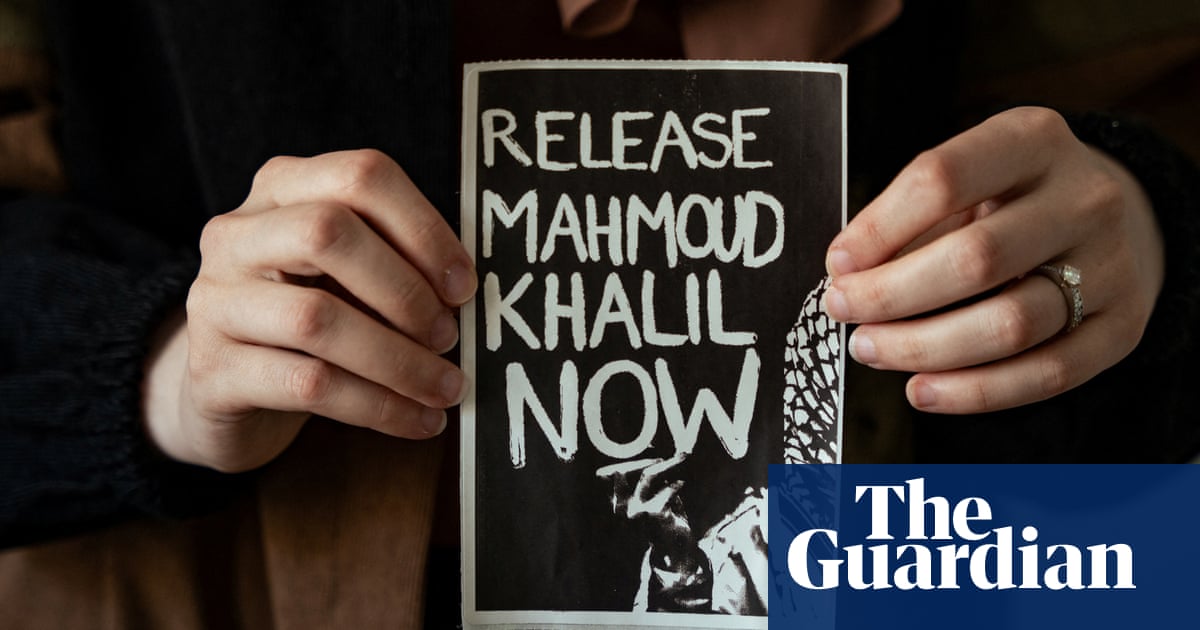A federal judge declined to order the release of Palestinian activist Mahmoud Khalil, a setback for the former Columbia University student days after amajor rulingagainst the Trump administration’s efforts to keep him detained.
Khalil, a green-card holder who has not been charged with a crime, is one of the most high-profile people targeted by the US government’s crackdown on pro-Palestinian campus activism. Despite keyrulingsin his favor, Khalil has been detained since March,missing the birth of his son.
His advocates were hopeful earlier in the week that he was close to walking free. On Wednesday, Judge Michael E Farbiarzruledthe Trump administration could no longer detain Khalil on the basis of claims that he posed a threat to US foreign policy. The federal judge in New Jersey said efforts to deport him based on those grounds were likely unconstitutional.
Farbiarz had given the US government until Friday morning to appeal against the order, which the Trump administration did not do. Khalil’s lawyers thenarguedhe must be released immediately, but the government said it would keep him detained in aremote detention facility in Louisiana. The administration argued it was authorized to continue detaining him based on alternative grounds – its allegations that he lied on his green-card application.
On Friday, Farbiarz said Khalil’s lawyers had failed to present enough evidence that detention based on the green-card claims was unlawful, suggesting attorneys for the 30-year-old activist could seek bail from a Louisiana immigration judge.
Khalil’s have strongly rejected the government’s assertions about problems with his green-card application, arguing the claims were a pretext to keep him detained.
“Mahmoud Khalil was detained in retaliation for his advocacy for Palestinian rights,” Amy Greer, one of his attorneys, said in a statement on Friday evening.
“The government is now using cruel, transparent delay tactics to keep him away from his wife and newborn son ahead of their first Father’s Day as a family. Instead of celebrating together, he is languishing in [immigration] detention as punishment for his advocacy on behalf of his fellow Palestinians. It is unjust, it is shocking, and it is disgraceful.”
Khalil has previously disputed the notion that he omitted information on his application.
In a filing last week, he maintained he was never employed by or served as an “officer” of the United Nations Relief and Works Agency for Palestine Refugees, as the administration claims, but completed an internship approved by the university as part of his graduate studies.
Khalil said he also stopped working for the British embassy in Beirut in December 2022, when he moved to the US, despite the administration’s claims that he had worked in the embassy’s Syria office longer.
The Friday ruling prolonging his detention came the same day agroup of celebrity fathersfilmed avideoreading Khalil’s letter to his newborn son. The Father’s Day campaign, published by the American Civil Liberties Union,called for Khalil’s freedomand included actorsMark Ruffalo,Mahershala Ali, Arian Moayed and Alex Winter.
Earlier in the week, when there was a ruling in Khalil’s favor, Dr Noor Abdalla, his wife, released a statement, saying: “True justice would mean Mahmoud was never taken away from us in the first place, that no Palestinian father, from New York to Gaza, would have to endure the painful separation of prison walls like Mahmoud has. I will not rest until Mahmoud is free.”
Marco Rubio, the US secretary of state, has previously claimed Khalil must be expelled because his continued presence would harm American foreign policy, an effort that civil rights advocates said was a blatant crackdown on lawful free speech.
